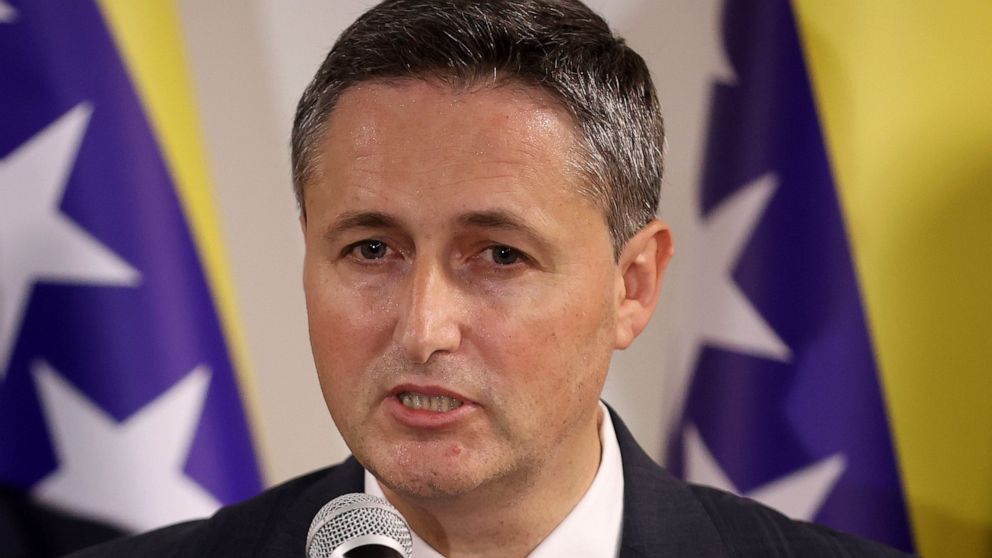SARAJEVO, Bosnia-Herzegovina — Bosnia’s long-entrenched sectarian parties were poised Monday to be the overall winners of the country’s general election despite symbolic successes by some opposition candidates who ran on a corruption-fighting agenda in the Balkan country that is divided along ethnic lines.
Preliminary results released Monday by Bosnia’s central election commission showed the tribal political groups that have enriched cronies and ignored the needs of the people have, once again, successfully exploited mutual fear and ethnic distrust to retain their grip on power after Sunday’s election.
Bosnia has three main ethnic communities — Muslim Bosniaks, Orthodox Serbs and Catholic Croats — and due to the country’s complicated political system of ethnic quotas at numerous levels of government, no single party can rule alone. That raises the prospect of protracted power-sharing talks.
The election included contests for the three members of Bosnia’s shared, multi-ethnic presidency, the president of one of its two highly autonomous parts, and parliament deputies at different, in part overlapping, levels of governance.
Bosnia’s institutional setup was introduced by a U.S.-brokered peace agreement that ended the war in the 1990s between its three main ethnic groups. Under the deal, Bosnia was divided into two entities — one run by Serbs and the other shared by Bosniaks and Croats — which have broad autonomy but are linked by joint, multi-ethnic institutions. All countrywide actions require often elusive consensus from all three ethnic groups.
Preliminary results showed the tribal political parties will remain dominant in the legislatures at all levels, likely maintaining their capacity to gridlock the country and mismanage public resources.
While cooperation-prone candidates Denis Becirovic and Zeljko Komsic were on course to win the respective Bosniak and Croat seats in the country-wide presidency, they are likely to be joined by Zeljka Cvijanovic from the strongest Bosnian Serb party, the secessionist and staunchly pro-Russian SNSD.
If the preliminary results hold, Cvijanovic will take over the post from her political party’s boss, Milorad Dodik, who chose to run for the president of Bosnia’s Serb-run part rather than seek a second term in the shared countrywide presidency.
With nearly 82% of the votes counted, Dodik, who used Bosnian election campaign to champion a secessionist agenda and Russia’s war in Ukraine, was seen as…
Click Here to Read the Full Original Article at ABC News: International…

